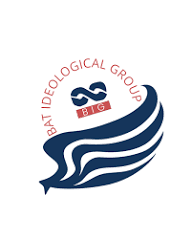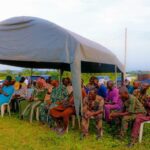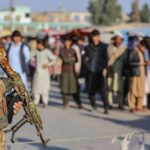Scrutiny on Peter Obi’s Alleged Links to NGO Amid Contentious Persecution Reports

A burgeoning controversy has erupted following an emerging inquiry that purportedly points to an operational connection between Peter Obi, the prominent Labour Party politician, and the Anambra-based advocacy group, the International Society for Civil Liberties and Rule of Law (Intersociety).
The focal point of the scrutiny is the organization’s voluminous reports that assert a systematic “Christian genocide” in Nigeria—a narrative the central government has forcefully rejected as misleading and destabilizing.
The core accusation leveled by the developing probe suggests that the political figure maintains a covert affiliation with the rights group, which critics claim is intended to fuel a specific, politically motivated narrative.
The reports authored by Intersociety have long been a source of significant debate, detailing thousands of killings, forced displacements, and the destruction of places of worship across parts of the country. While the NGO presents these findings as meticulously documented evidence of targeted religious persecution, political adversaries contend the statistics are exaggerated or falsely framed to achieve a political objective, particularly to undermine confidence in the current administration.
Intersociety, a civil society organization with roots in the Southeast, has historically been engaged in high-stakes human rights and pro-democracy advocacy. For instance, the group played an active, documented role in the judicial efforts that reinstated Mr. Obi as the Governor of Anambra State years ago, confirming a long-standing, if indirect, relationship with the politician’s camp.
This historical context is now being re-examined by those alleging that the organization functions as a proxy to amplify politically convenient assertions, especially those capable of eliciting international attention and condemnation.
The Federal Government’s position on the matter remains resolute. It has consistently challenged the widely circulated term “Christian genocide,” dismissing these assertions as baseless, divisive, and a gross oversimplification of Nigeria’s complex security challenges.
Official sources maintain that non-state armed groups, including terrorists and bandits, do not discriminate based on creed, instead targeting all communities, security personnel, and institutions that reject their ideology. The government’s counter-narrative seeks to delegitimize the NGO’s findings by questioning their methodology and alleging political motivation behind their dissemination.
This latest round of accusations arrives at a time when the political climate remains tense, following the 2023 general elections. Mr. Obi, a figure known for his “Obidient” grassroots movement, has frequently found himself defending against various allegations, ranging from purported foreign account violations exposed in the Pandora Papers to more recent, highly charged accusations of instigating insurrection.
Ironically, Intersociety had previously issued a public warning to the Federal Government to cease what they described as a calculated campaign to criminally label the politician with treasonous claims.
As the political tussle continues, the controversy places Intersociety’s credibility under an unprecedented spotlight. The organization is now compelled to defend its independence and the integrity of its human rights documentation against claims that its reports are merely political ammunition rather than objective truth.
The allegations of an undue operational link between a prominent politician and a key source of contentious, internationally distributed human rights statistics underscores the increasingly charged nature of political discourse in Nigeria.









